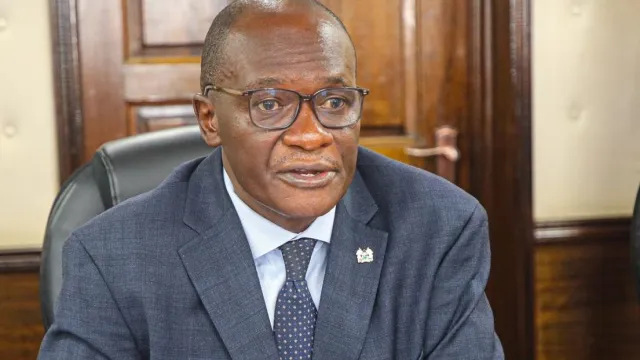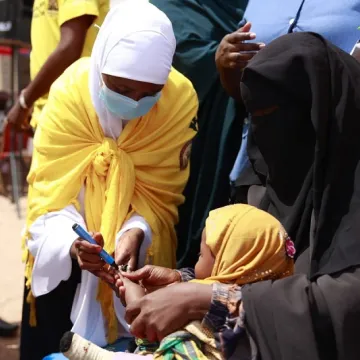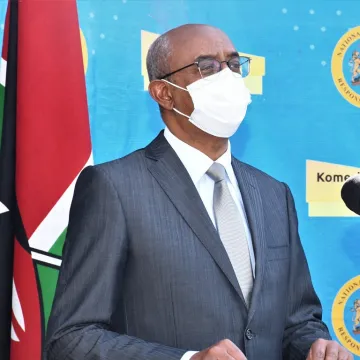Health Ministry refutes polio vaccine death claims

Director-General for Health, Dr. Patrick Amoth, says the Ministry engaged the Kenya National Vaccines Safety Advisory Committee (KNVSAC) to review the cases.
Authorities in the Ministry of Health have absolved the government from blame following the death of two children, who allegedly succumbed after the administration of the polio vaccine. The country launched an immunization campaign against polio in October.
Amid public concern over vaccine safety, the Ministry of Health confirmed the fatalities, which were among 23 reported adverse reactions associated with the vaccine rollout conducted from October 2-6 in nine counties.
In an update, Director-General for Health, Dr. Patrick Amoth, stated that the Ministry engaged the Kenya National Vaccines Safety Advisory Committee (KNVSAC) to review the cases.
The committee convened on October 23-24 and investigated all reported cases, finding that 16 of them were non-serious, involving symptoms such as rashes, fever, and abdominal pain.
"The National Vaccine Safety Advisory Committee investigated and confirmed that there is no direct relationship or link between the polio vaccine and any of the reported cases," the Ministry of Health noted on Sunday in an update.
Read also: Kenya’s private sector shows signs of revival in October
Polio vaccine is safe
It added, "The polio vaccine is safe and has been approved for use in Kenya by both the Pharmacy and Poisons Board and the World Health Organization."
However, seven cases were classified as serious, with symptoms including limb weakness, convulsions, and vomiting.
"The Ministry of Health assures all vaccines, including the polio vaccine, are safe and effective in shielding our children from preventable diseases. Vaccines prompt the immune system to fight infections, and while mild side effects may happen, they usually resolve quickly," added Dr. Amoth.
Dr. Amoth noted that the majority of the reported cases were deemed coincidental, with factors such as timing, pre-existing health conditions, and environmental exposures contributing to symptoms that were not directly related to the vaccine.
Specifically, 18 cases were attributed to underlying health issues, while four were considered possible vaccine reactions such as generalized rashes and fevers. One case remains indeterminate due to insufficient information, the top Health official clarified.
The polio campaign, which aimed to protect children in high-risk counties such as Nairobi, Busia, and Turkana, reportedly reached more than 3.6 million children.
Dr. Amoth explained that comprehensive causality assessments are crucial to identifying true vaccine-related reactions and maintaining public confidence in immunization programs. He assured that most vaccinated children remained healthy, underscoring that vaccines are generally safe.
Health officials encourage parents to report post-vaccination concerns to nearby health facilities or through the Mobile Pharmacovigilance Electronic Reporting System, accessible via the platform *271#.





